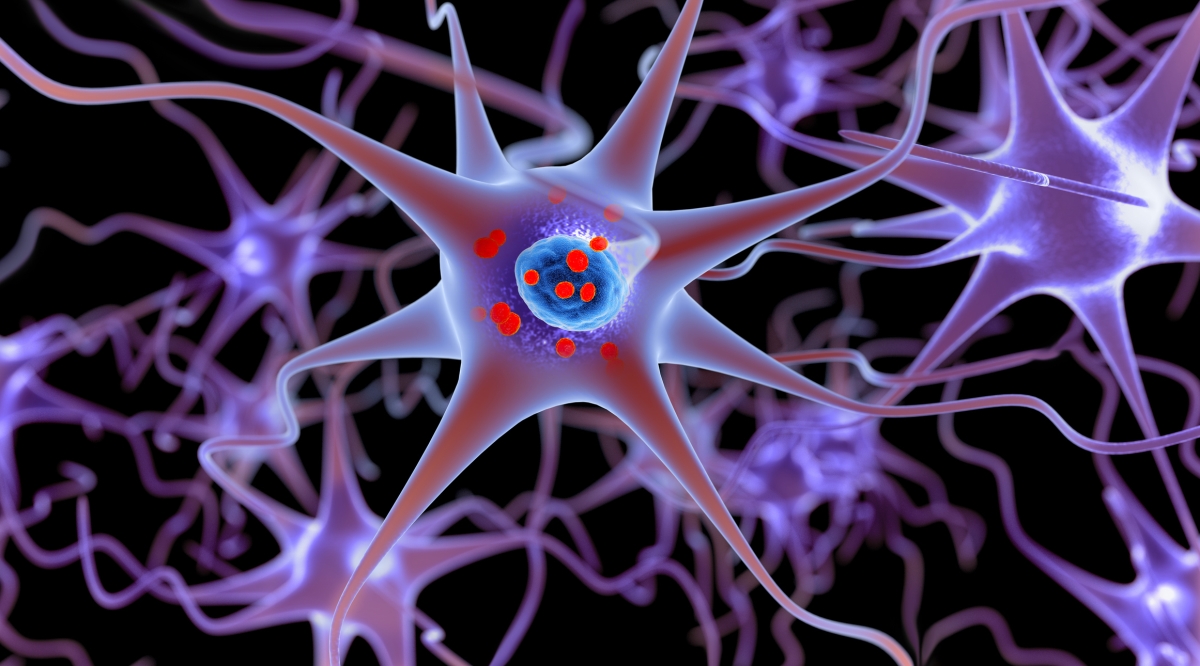What Is Dopamine?
Do you know the pleasure you feel when you smell your favorite meal? Or the excitement of finding just the right look for a big event knowing you’re going to look hot? Those scenarios can cause a “feel-good” dopamine release in your body.
The body’s production of dopamine is two-step. It begins in the brain with the amino acid L-Tyrosine converted into L-Dihydroxyphenylalanine (L-DOPA). Enzymes then convert L-DOPA into dopamine. Dopamine functions as a chemical messenger to the rest of the body.
Dopamine is the neurotransmitter that makes you human. It fuels your drive and maintains your motivation. It affects your movements, your thinking, and even your sex drive. Dopamine rewards us with pleasure in things that help us survive, like enjoying food. It is so important that dopamine imbalances can affect your ability to enjoy daily life.
Since dopamine allows you to focus and learn, this article will cover how it works and how to support your dopamine function as a Nootopian.
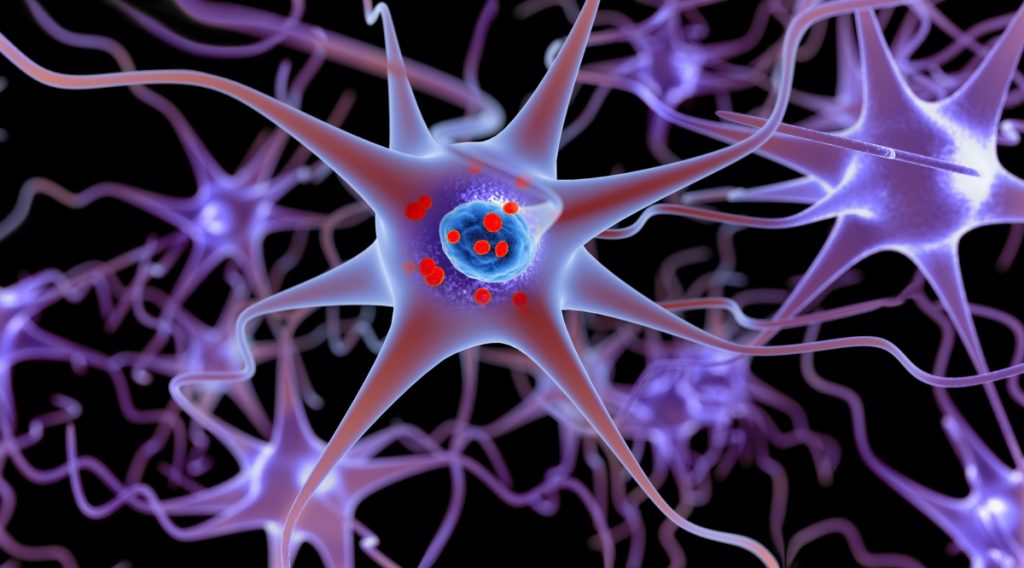
Roles Of Dopamine In Mood, Motivation, And Cognitive Functions
Motivation
Dopamine activates your body’s “reward center.” When something is enjoyable, like eating dessert or playing a video game, dopamine is released and makes you feel good. And feeling good motivates you to repeat the behavior.
Mood
Dopamine can strongly affect your mood. Low levels of dopamine have been linked to feelings of depression, while excess levels can contribute to mania.
Attention
Attention disorders such as ADHD are linked to lower dopamine levels in the body.
Focus
How well you focus on a task may also be related to the reward aspect of how dopamine works in your body. If your brain perceives a job to have the potential to be more rewarding (like getting paid), your body is more likely to keep you focused on completing the task.

Cognition
Just as dopamine can encourage your focus to get a reward, it can also improve your mental processes. When your cognition is improved, you are more likely to complete a task and be rewarded.
Memory
More dopamine equals better memory, especially when it comes to emotional or rewarding experiences. What do you have a better memory of? Your first kiss or the day you learned to tie your shoes? I’m guessing it was the kiss. Your first kiss was probably a more rewarding experience. This increase in dopamine tells your brain that an important event just occurred and helps transform that kiss into a long term memory.
Learning
How did it feel to get an answer right on a test when you were in school? Great, right? At that very moment, your brain released dopamine, and you probably became more motivated to keep getting rewarded. More studying and staying focused on learning can lead to more rewards.
Lactation
Prolactin is the hormone responsible for milk production in lactating mothers, and dopamine is one of the primary regulators of this hormone. In breastfeeding women, more dopamine reduces the amount of prolactin and therefore lowers milk production. In any other scenario, if dopamine is too low (often caused by stress) it can lead to an increase in prolactin which can inhibit fertility.
Sleep And Wakefulness
The pineal gland is responsible for your circadian rhythm, or how your body knows how to follow light cues to learn when to sleep and when to get up. The pineal gland does this by signaling the body when to release melatonin. When your dopamine levels increase during times of higher stimulation, it inhibits your body’s ability to release melatonin. Therefore, dopamine is one of your wakefulness neurotransmitters.
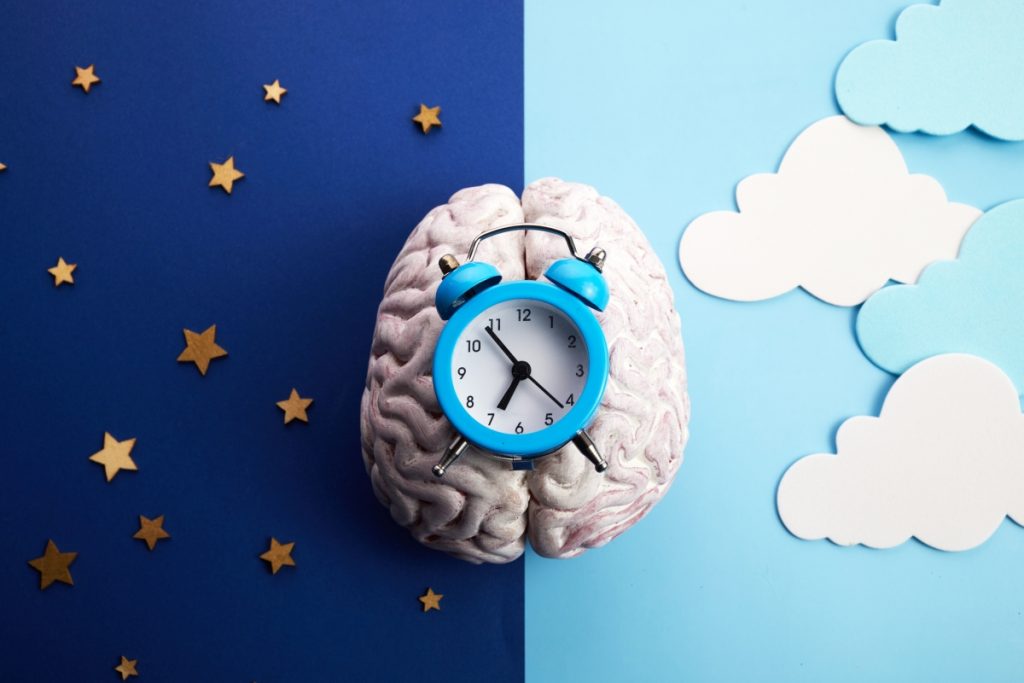
Signs Your Dopamine Levels Are Too High
So how can you tell if you are producing too much dopamine? High levels of dopamine are associated with the following symptoms:
- Aggressive behavior
- Increased stress
- Anxiety
- Excessive sex drive (I know that might seem like a great thing, but in this case, it’s not.)
- High energy levels
- Difficulty sleeping
- Addiction (also resulted from blunted dopamine reception)
Signs Your Dopamine Levels Are Too Low
The following conditions are linked to low dopamine. However, many of these conditions also have other contributing causes, so increasing dopamine alone may not cure them.
- Moodiness
- Lack of motivation
- Low energy
- Low sex drive
- Restless leg syndrome
- Parkinson’s disease
- Depression
- Problems with short-term memory
Natural Ways To Increase Dopamine
There are lots of ways to increase your dopamine levels naturally. Some are as easy as making some dietary and lifestyle changes. One of the most effective and exciting ways to control your dopamine levels could be easier than you think. Read on to learn more.
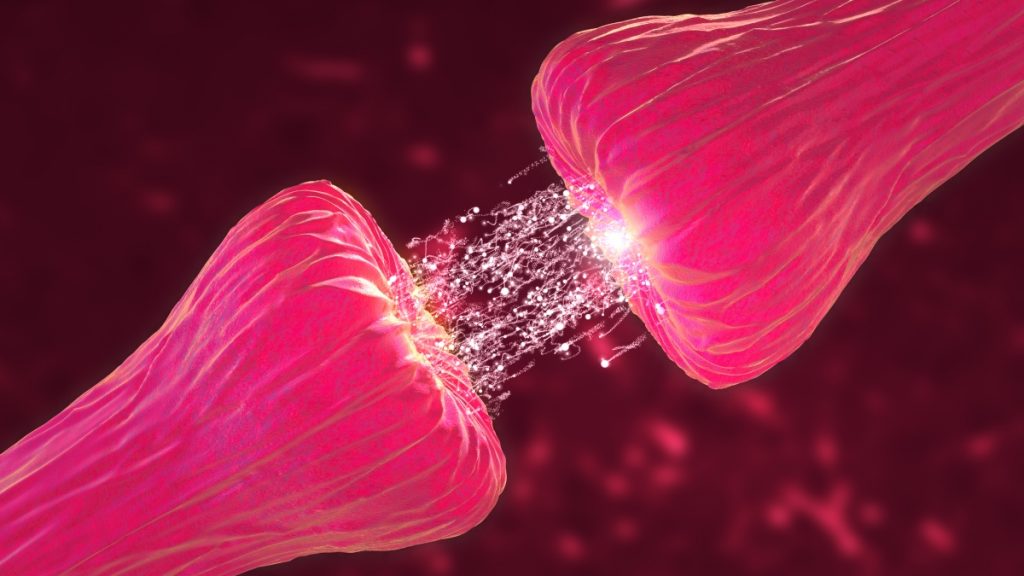
Change Your Diet
First, let’s talk about ways you can change your diet. You can increase your dopamine levels by eating more of the following foods:
- Bananas or plantains
- Avocado
- Beans, such as fava beans and velvet beans
- Oranges
- Tomatoes
- Eggplant
- Spinach
- Apples
- Peas
Because dopamine begins with the amino acid tyrosine, foods high in tyrosine can increase dopamine levels. Add more of the following foods to your diet:
- Nuts
- Eggs
- Cheese
- Meat (beef, lamb, pork, chicken)
- Fish
- Dairy
- Beans
- Whole grains
- Soybeans
You may have noticed that most foods listed above are high in protein. Increasing dopamine levels is not the only reason to eat more protein.
Certain foods may limit your body’s ability to produce dopamine. Diets high in saturated fat promote inflammation in the body and disrupt dopamine signaling.
Change Your Lifestyle
Exercise
When you exercise, dopamine releases into your body. Remember that rewards system we talked about? More exercise = more rewards, and more rewards = more motivation to keep exercising.
Relaxation
Relaxation techniques such as meditation and mindfulness increase dopamine levels. In a study of 8 male yoga teachers, Yoga Nidra meditation increased dopamine by 65%. A study on Focused Attention Meditation (FAM), where you focus your mind on one sound, thought, object or sensation, found that the more experienced you are with meditation, the more dopamine you get while meditating.

Sunlight
Go outside and soak up some sun. You probably already know that not getting enough sunshine over a long period of time can lead to feelings of depression and sadness. The WHO also linked low sun exposure to an increase in disease burden.
Sunlight provides the body with crucial vitamin D. Vitamin D not only plays a vital role in boosting your immune system, but individuals with high sun exposure have a greater amount of dopamine available than individuals with low sun exposure.
Sleep
Sleep is essential for our bodies to be able to:
- Recharge
- Improve our learning, memory, and creativity
- Support our ability to fight off disease
- Support a healthy metabolism
Atypical sleep patterns are linked to neuropsychiatric disorders. Dopamine release occurs predominantly during light sleep, which is the first stage of sleep and makes up about half of your night’s sleep. When you listen to music you enjoy, and it makes you feel good, you encourage your body to release more dopamine.
Supplements
Supplements are not only a way to increase your dopamine levels but also a way to increase your cognitive function overall.
Vitamin D
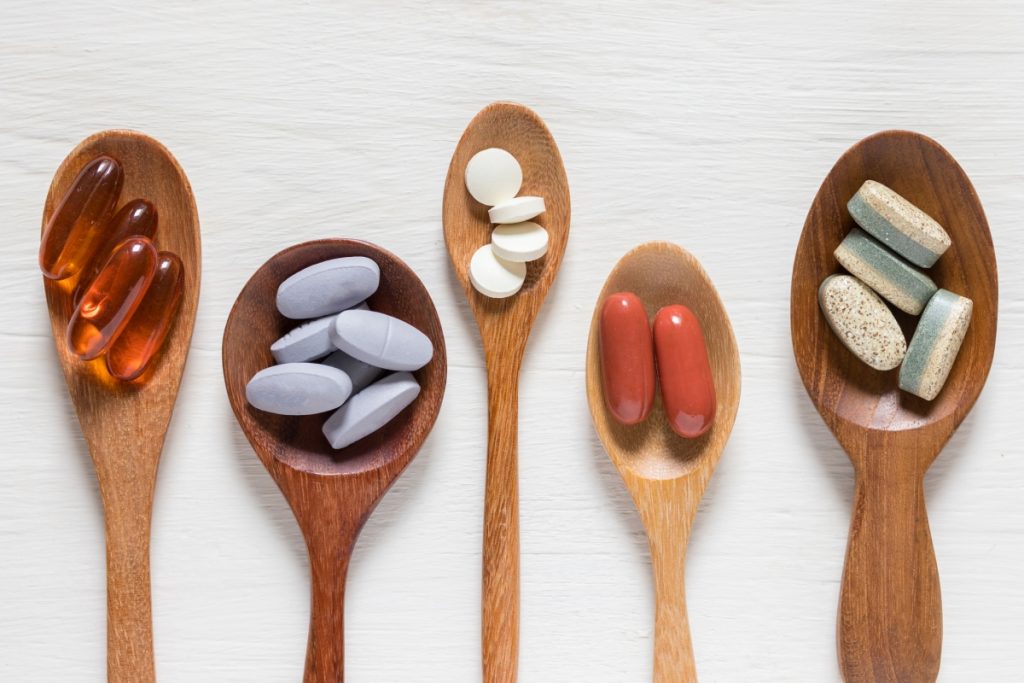
Vitamin D not only has the ability to support dopamine production, but it also protects the dopamine system. Even within the context of a high-fat diet in mice, vitamin D mitigates the effects of saturated fat on the dopamine system.
Probiotics
Probiotics can do more than improve your gut health. Many even refer to the gut as your “second brain” because it produces some of the same neurotransmitters as your brain, including about half of your dopamine.
In a placebo-controlled study of 111 stressed adults, subjects received 1 billion CFUs of the probiotic Lactobacillus plantarum per day for 12 weeks. In comparison to the placebo group, subjects who took the probiotic had a more stabilized dopamine pathway, as well as increased cognitive and memory function.
Ginkgo Biloba
Long-term daily supplementation of ginkgo biloba in rats increased their dopamine levels.
Natural Mood-boosting Herbs And Supplements
Supplements thought to have mood-boosting effects also increase dopamine. Some examples include:
Curcumin
Given at high doses in mice, curcumin inhibits the breakdown of dopamine thereby causing an increase in overall dopamine levels. The higher level of available dopamine increases the dopamine in the brain and has a mood-boosting effect.
Oregano Oil
In small doses, carvacrol, the active substance in oregano oil, increases the dopamine levels in the brain.
Magnesium
Magnesium is an essential mineral with a mood-boosting effect. It works partly by supporting healthy dopamine levels.
Magnesium Breakthrough is the most bioavailable magnesium with 7 different forms and 500 mg of pure magnesium in 2 capsules.
Green Tea
Green tea contains the amino acid L-theanine. L-theanine increases certain neurotransmitters in the brain, including dopamine.
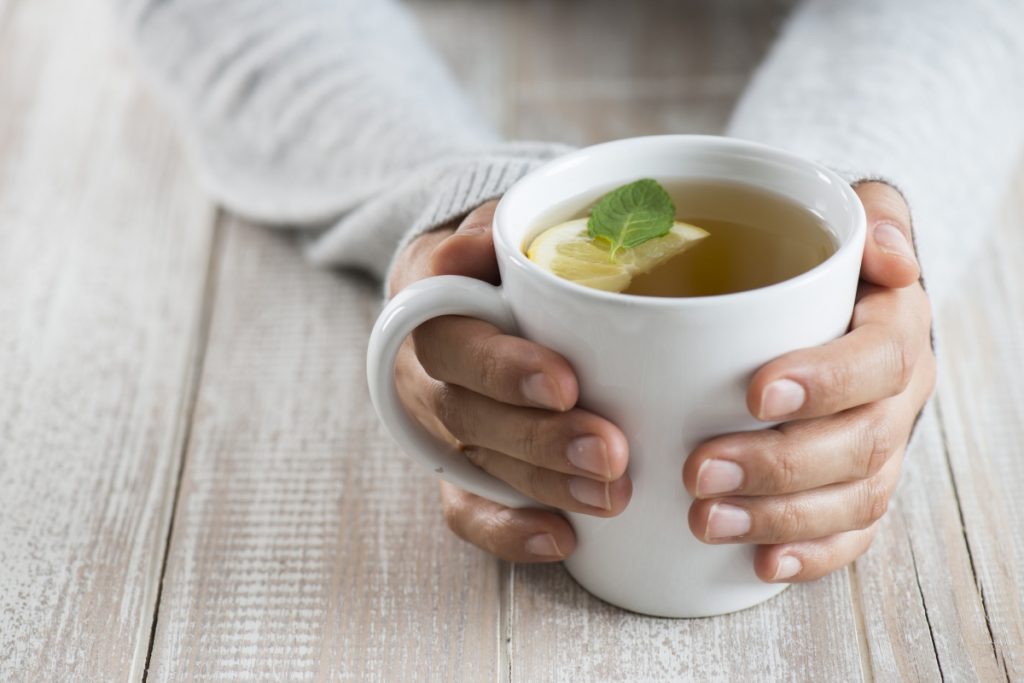
Omega-3 Fatty Acids
Omega-3 fatty acids help to develop and maintain the dopamine system thereby allowing the body to produce more dopamine.
Tyrosine
Increased availability of the amino acid tyrosine influences the release of dopamine. When dopamine is depleted, tyrosine effectively increases dopamine. Tyrosine is helpful during short-term stress.
DL-Phenylalanine (DLPA)
DLPA is an amino acid crucial to the production of dopamine. DLPA produces tyrosine which, in turn, produces dopamine.
Natural Ways To Reduce Dopamine
What do you do if your dopamine levels are too high? Below are some supplements to check out.
Supplements That Increase Serotonin
Increasing your serotonin levels can decrease your dopamine levels and vice versa. The following are supplements can increase serotonin and may suppress dopamine levels:
- Melatonin
- Lithium
- Manganese
Bacopa Monnieri
Bacopa is a medicinal Ayurvedic herb that modulates dopamine. In fact, it is considered to be an adaptogenic herb and can either increase or decrease dopamine as needed.
Licorice Root
The flavonoid isoliquiritigenin, found in licorice root, can block dopamine production.
The Takeaway
Dopamine is an important neurotransmitter that plays a role in your brain and your gut. When your dopamine levels are off-balance, it can affect your mood, cognitive function, motivation, motor function, and experiences of pleasure.
There are many natural ways to balance or enhance your dopamine levels. One of the most effective ways is by taking Nootropics. But first, find out what kind of neurotransmitter support you need the most with our quiz here.
References:
- Wise RA. Dopamine, learning and motivation. Nat Rev Neurosci. 2004;5(6):483-494. doi:10.1038/nrn1406
- Diehl DJ, Gershon S. The role of dopamine in mood disorders. Compr Psychiatry. 1992;33(2):115-120. doi:10.1016/0010-440x(92)90007-d
- Nieoullon A. Dopamine and the regulation of cognition and attention. Prog Neurobiol. 2002;67(1):53-83. doi:10.1016/s0301-0082(02)00011-4
- Dopamine affects how brain decides whether a goal is worth the effort. National Institutes of Health (NIH). Published March 30, 2020. Accessed June 30, 2022. https://www.nih.gov/news-events/nih-research-matters/dopamine-affects-how-brain-decides-whether-goal-worth-effort
- Westbrook A, van den Bosch R, Määttä JI, et al. Dopamine promotes cognitive effort by biasing the benefits versus costs of cognitive work. Science. 2020;367(6484):1362-1366. doi:10.1126/science.aaz5891
- LaLumiere RT. Dopamine and Memory. In: Meneses A, ed. Identification of Neural Markers Accompanying Memory. Elsevier; 2014:79-94.
- Neuroscience News. The role of dopamine in motivation and learning. Neuroscience News. Published November 24, 2015. Accessed June 30, 2022. https://neurosciencenews.com/dopamine-learning-reward-3157/
- Prolactin. Yourhormones.info. Accessed June 30, 2022. https://www.yourhormones.info/hormones/prolactin/
- Public Library of Science. The role of dopamine in sleep regulation. Science Daily. Published online June 19, 2012. Accessed June 30, 2022. https://www.sciencedaily.com/releases/2012/06/120619225725.htm
- Kim JH, Son YD, Kim HK, et al. Association of harm avoidance with dopamine D2/3 receptor availability in striatal subdivisions: a high resolution PET study. Biol Psychol. 2011;87(1):164-167. doi:10.1016/j.biopsycho.2011.02.011
- Stanwood GD. Dopamine and Stress. In: Fink G, ed. Stress: Physiology, Biochemistry, and Pathology. Elsevier; 2019:105-114.
- Briguglio M, Dell’Osso B, Panzica G, et al. Dietary neurotransmitters: A narrative review on current knowledge. Nutrients. 2018;10(5):591. doi:10.3390/nu10050591
- Kühn S, Düzel S, Colzato L, et al. Food for thought: association between dietary tyrosine and cognitive performance in younger and older adults. Psychol Res. 2019;83(6):1097-1106. doi:10.1007/s00426-017-0957-4
- Wallace CW, Fordahl SC. Obesity and dietary fat influence dopamine neurotransmission: exploring the convergence of metabolic state, physiological stress, and inflammation on dopaminergic control of food intake. Nutr Res Rev. Published online 2021:1-16. doi:10.1017/S0954422421000196
- Heijnen S, Hommel B, Kibele A, Colzato LS. Neuromodulation of aerobic exercise-A review. Front Psychol. 2015;6:1890. doi:10.3389/fpsyg.2015.01890
- Esch T. The neurobiology of meditation and mindfulness. In: Meditation – Neuroscientific Approaches and Philosophical Implications. Springer International Publishing; 2014:153-173.
- Kjaer TW, Bertelsen C, Piccini P, Brooks D, Alving J, Lou HC. Increased dopamine tone during meditation-induced change of consciousness. Brain Res Cogn Brain Res. 2002;13(2):255-259. doi:10.1016/s0926-6410(01)00106-9
- Knytl P, Opitz B. Meditation experience predicts negative reinforcement learning and is associated with attenuated FRN amplitude. Cogn Affect Behav Neurosci. 2019;19(2):268-282. doi:10.3758/s13415-018-00665-0
- Mead MN. Benefits of sunlight: a bright spot for human health. Environ Health Perspect. 2008;116(4):A160-7. doi:10.1289/ehp.116-a160
- Solar ultraviolet radiation: Global burden of disease from solar ultraviolet radiation. Who.int. Published June 13, 2006. Accessed June 30, 2022. https://www.who.int/publications/i/item/9241594403
- Tsai HY, Chen KC, Yang YK, et al. Sunshine-exposure variation of human striatal dopamine D2/D3 receptor availability in healthy volunteers. Progress in Neuro-Psychopharmacology and Biological Psychiatry. 2011;35(1):107-110. doi:10.1016/j.pnpbp.2010.09.014
- Winkelman JW, Lecea L de. Sleep and neuropsychiatric illness. Neuropsychopharmacology. 2020;45(1):1-2. doi:10.1038/s41386-019-0514-5
- Kesner AJ, Lovinger DM. Wake up and smell the dopamine: new mechanisms mediating dopamine activity fluctuations related to sleep and psychostimulant sensitivity. Neuropsychopharmacology. 2021;46(4):683-684. doi:10.1038/s41386-020-00903-5
- Ferreri L, Mas-Herrero E, Zatorre RJ, et al. Dopamine modulates the reward experiences elicited by music. Proc Natl Acad Sci U S A. 2019;116(9):3793-3798. doi:10.1073/pnas.1811878116
- Trinko JR, Land BB, Solecki WB, et al. Vitamin D3: A role in dopamine circuit regulation, diet-induced obesity, and drug consumption. eNeuro. 2016;3(2). doi:10.1523/ENEURO.0122-15.2016
- Xue R, Zhang H, Pan J, et al. Peripheral dopamine controlled by gut microbes inhibits invariant natural killer T cell-mediated hepatitis. Front Immunol. 2018;9:2398. doi:10.3389/fimmu.2018.02398
- Chong HX, Yusoff NAA, Hor YY, et al. Lactobacillus plantarum DR7 alleviates stress and anxiety in adults: a randomised, double-blind, placebo-controlled study. Benef Microbes. 2019;10(4):355-373. doi:10.3920/BM2018.0135
- Yoshitake T, Yoshitake S, Kehr J. The Ginkgo biloba extract EGb 761(R) and its main constituent flavonoids and ginkgolides increase extracellular dopamine levels in the rat prefrontal cortex: Ginkgo increases cortical dopamine. Br J Pharmacol. 2010;159(3):659-668. doi:10.1111/j.1476-5381.2009.00580.x
- Kulkarni SK, Dhir A. An overview of curcumin in neurological disorders. Indian J Pharm Sci. 2010;72(2):149-154. doi:10.4103/0250-474X.65012
- Melo FHC, Moura BA, de Sousa DP, et al. Antidepressant-like effect of carvacrol (5-Isopropyl-2-methylphenol) in mice: involvement of dopaminergic system: Involvement of dopaminergic system. Fundam Clin Pharmacol. 2011;25(3):362-367. doi:10.1111/j.1472-8206.2010.00850.x
- Cardoso CC, Lobato KR, Binfaré RW, et al. Evidence for the involvement of the monoaminergic system in the antidepressant-like effect of magnesium. Progress in Neuro-Psychopharmacology and Biological Psychiatry. 2009;33(2):235-242. doi:10.1016/j.pnpbp.2008.11.007
- Dasdelen MF, Er S, Kaplan B, et al. A novel theanine complex, Mg-L-theanine improves sleep quality via regulating brain electrochemical activity. Front Nutr. 2022;9:874254. doi:10.3389/fnut.2022.874254
- Healy-Stoffel M, Levant B. N-3 (omega-3) fatty acids: Effects on brain dopamine systems and potential role in the etiology and treatment of neuropsychiatric disorders. CNS Neurol Disord Drug Targets. 2018;17(3):216-232. doi:10.2174/1871527317666180412153612
- Jongkees BJ, Hommel B, Kühn S, Colzato LS. Effect of tyrosine supplementation on clinical and healthy populations under stress or cognitive demands–A review. J Psychiatr Res. 2015;70:50-57. doi:10.1016/j.jpsychires.2015.08.014
- Lou HC. Dopamine precursors and brain function in phenylalanine hydroxylase deficiency. Acta Paediatr. 1994;83(s407):86-88. doi:10.1111/j.1651-2227.1994.tb13461.x
- Zisapel N. Melatonin–Dopamine Interactions: From Basic Neurochemistry to a Clinical Setting. Cell Mol Neurobiol. 2001;21(6):605-616. doi:10.1023/a:1015187601628
- Malhi GS, Tanious M, Das P, Coulston CM, Berk M. Potential mechanisms of action of lithium in bipolar disorder. CNS Drugs. 2013;27(2):135-153. doi:10.1007/s40263-013-0039-0
- Sistrunk SC, Ross MK, Filipov NM. Direct effects of manganese compounds on dopamine and its metabolite Dopac: an in vitro study. Environ Toxicol Pharmacol. 2007;23(3):286-296. doi:10.1016/j.etap.2006.11.004
- Aguiar S, Borowski T. Neuropharmacological review of the nootropic herb Bacopa monnieri. Rejuvenation Res. 2013;16(4):313-326. doi:10.1089/rej.2013.1431
- Thomas RB, Joy S, Ajayan MS, Paulose CS. Neuroprotective potential of Bacopa monnieri and Bacoside A against dopamine receptor dysfunction in the cerebral cortex of neonatal hypoglycaemic rats. Cell Mol Neurobiol. 2013;33(8):1065-1074. doi:10.1007/s10571-013-9973-0
- Jeon JP, Buono RJ, Han BG, et al. Proteomic and behavioral analysis of response to isoliquiritigenin in brains of acute cocaine treated rats. J Proteome Res. 2008;7(12):5094-5102. doi:10.1021/pr800237s
